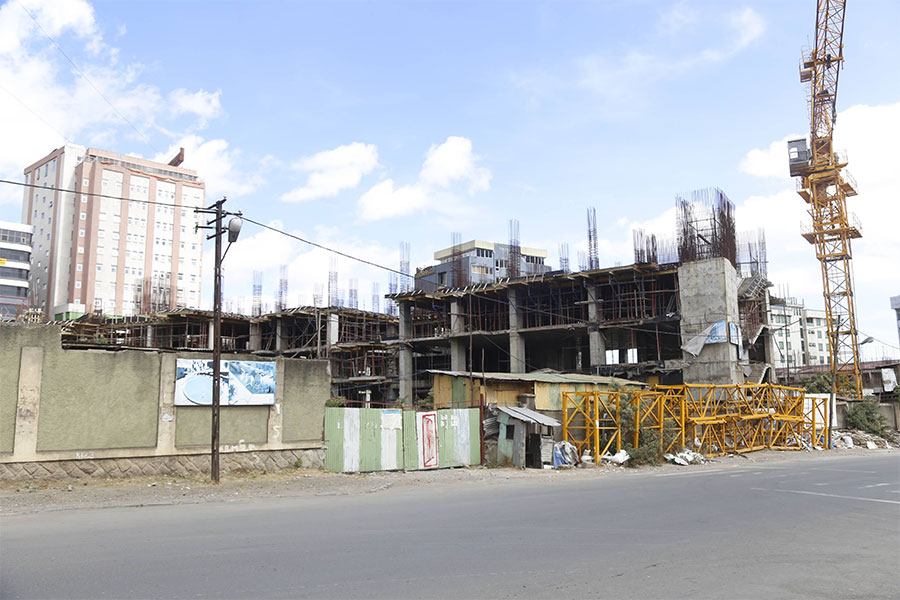
Radar | May 18,2024
Education Minister Berhanu Nega (Prof.) has introduced a directive compelling university students to sit for exit examinations before completing undergraduate studies. It is a decision that brings apprehension in the high learning community as many are reluctant to respond.
Berhanu hopes to see the new requirement raising the quality of education and improving the effectiveness of higher learning institutions. Students will have three opportunities to sit for the exit exams beginning in October this year.
Berhanu is one of three opposition leaders appointed to Prime Minister Abiy Ahmed’s (PhD) cabinet last year. Last month, he was re-elected as the head of the Ethiopian Citizens for Social Justice (Ezema) party. He is responsible for a federal agency with a 64.7 billion Br budget this fiscal year, claiming 13pc. The education sector takes the largest share of this year’s federal budget after debt servicing, defence, and roads.
Tertiary education has come a long way since the opening of the University College of Addis Abeba (later Haile Selassie I University and then Addis Abeba University) in 1950.
In the past two decades, close to 30 state-run higher learning institutions were established, boosting the total number of public universities to 42. These institutions enrol over 350,000 students, most of whom are undergraduate students.
Although officials have been trying to accommodate the rapid expansion in the number of public universities and the surging number of students, doubts over quality, particularly in the newly-opened public universities, loom over. Many private colleges and universities that have sprung up over the past two decades share a similar reputation. Private schools have repeatedly been subject to rebukes from the federal agency overseeing higher education quality.
Both public and private colleges are accountable to the Education Ministry’s new rule. Close to 100,000 students graduate from higher learning institutions each year. Undergraduate students will sit for the exit exams in their final semester, held twice a year.
Emebet Mulgeta (PhD), academic vice president at Addis Abeba University, told Fortune that the University’s administrators are discussing the matter but declined to comment further.
Representatives of other higher learning institutions seemed reluctant to accept the new rules. Several declined to comment.
A federal agency run by Dilamo Oteri, the National Educational Assessment & Examination Agency, will be tasked with administering the exit exams – from registering students to preparing the tests and certifying results. Established 64 years ago, the Agency conducts nationwide educational assessments for students matriculating from the eighth and 12th grades. Close to 1.5 million of these students sat for the exams last year.
The directive’s authors believe the exams will measure students’ cognitive content and aptitude, administered in person or virtually. Students sit for these exams more than once, and those attending private colleges will pay fees.
The Ethiopian Education & Research Network (EthERNet) conducts the exams virtually. Zelalem Assefa (PhD) was appointed in 2018 to serve as the Network’s director, established in 2009 to oversee programmes such as SchoolNet and WoredaNet.
Education officials push for tougher academic standards, but many prospective graduates see “fairness” during periods of uncertainties, causing a series of academic interruptions. Recent years have seen the closure of nearly all public universities due to the pandemic, which wreaked havoc on educational cycles from primary school to university. The civil war battering the country’s north for over a year and a half and growing insurgency in other regions have also taken their toll on students.
Kaleb Zelealem, 23, is an electrical engineering student at Metu University. He recalled that instability often interrupted the first and second years of his stay at the University.
“Classes were disrupted often due to the pandemic and unrest,” he told Fortune.
Although Kaleb has a 3.87 cumulative grade point average (GPA), he says he feels unprepared to sit for the exit exam.
Nonetheless, officials say they have decided whether to leave prospective graduates on the hook. Although there were disturbances, students are still attending classes, according to Eba Mijena (PhD), a state minister for Education.
“As long as students want to get their degree, they must take the exit exam.”
Experts say the exit exam could offer several advantages if designed appropriately.
“It can uplift graduates’ confidence when they join the labour market,” said Tirussew Teferra (Prof.), an education expert and project leader of a team at the Ethiopian Education Roadmap Development. “It can also help employers recruit competent graduates.”
Yet expert foresees the exit exam might have its downsides. Tirussew argues that introducing the exams before making essential structural improvements to educational quality could have adverse effects. The country’s tertiary education system remains challenging, from scarce funding to poor facilities and overcrowded classrooms to inadequately qualified faculty.
Eba says the basic facilities are in place.
“Although it isn’t luxurious, universities are equipped with the necessary infrastructure,” he told Fortune.
Tirussew warns that the exit exams may lead to a graduate pile-up if many students fail to score above the cutoff point. According to the latest survey by the Ethiopian Statistics Service, nearly a fifth of the population is unemployed.
PUBLISHED ON
Jul 30,2022 [ VOL
23 , NO
1161]

Radar | May 18,2024

Fortune News | Apr 09,2022

Radar | Sep 26,2021

Fortune News | Oct 02,2021

Fortune News | Sep 10,2021

Fortune News | Jul 18,2020

Fortune News | Jan 29,2022

Fortune News | Jan 22,2022

Radar | Jun 25,2022

Radar | Jun 26,2021

Dec 22 , 2024 . By TIZITA SHEWAFERAW
Charged with transforming colossal state-owned enterprises into modern and competitiv...

Aug 18 , 2024 . By AKSAH ITALO
Although predictable Yonas Zerihun's job in the ride-hailing service is not immune to...

Jul 28 , 2024 . By TIZITA SHEWAFERAW
Unhabitual, perhaps too many, Samuel Gebreyohannes, 38, used to occasionally enjoy a couple of beers at breakfast. However, he recently swit...

Jul 13 , 2024 . By AKSAH ITALO
Investors who rely on tractors, trucks, and field vehicles for commuting, transporting commodities, and f...

Jul 5 , 2025
Six years ago, Ethiopia was the darling of international liberal commentators. A year...

Jun 28 , 2025
Meseret Damtie, the assertive auditor general, has never been shy about naming names...

Jun 21 , 2025
A well-worn adage says, “Budget is not destiny, but it is direction.” Examining t...

Jun 14 , 2025
Yet again, the Horn of Africa is bracing for trouble. A region already frayed by wars...